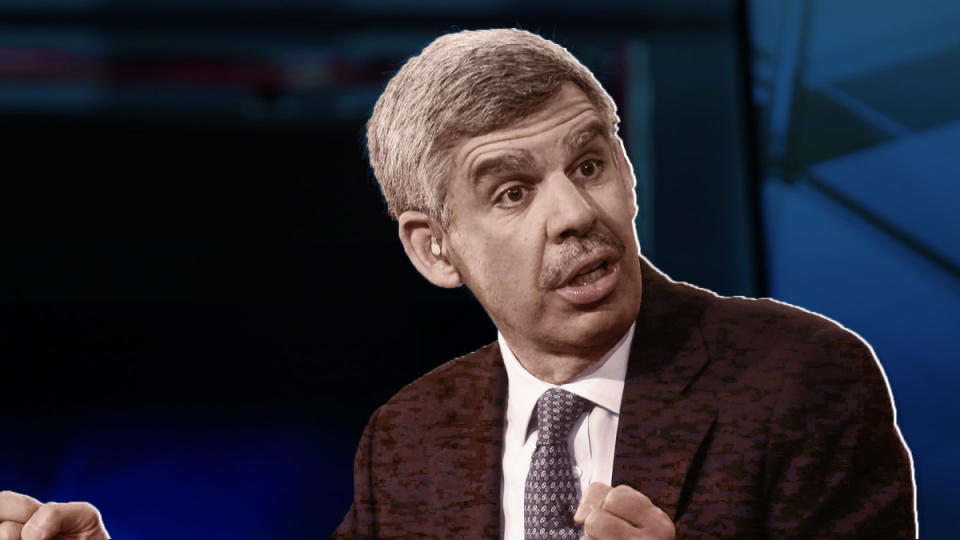Mohamed El-Erian has blunt words for the Fed on interest rates
Experts’ views vary widely about when the Federal Reserve will start cutting interest rates and by how much.
Some expect one rate decrease this year, some expect two, and some expect zero.
Harvard economist Larry Summers even sees a 15% to 25% chance that the next Fed rate move will be an increase.

Rob Kim/Getty/TheStreet
There’s disagreement at the Fed itself, too. At last week’s meeting, eight Fed officials predicted two rate cuts this year, seven predicted one cut, and four predicted zero cuts.
Similarly conflicting, the economy grew just 1.4% annually in the first quarter, but the Atlanta Fed’s forecasting tool points to 3.1% growth for the second quarter, and nonfarm payrolls soared 272,000 in May.
On the inflation front, the core Consumer Price Index, which excludes food and energy, registered 3.4% in the 12 months through May, the lowest reading in more than three years.
Meanwhile, the Fed’s favored inflation indicator, the Personal Consumption Expenditures Index, totaled 2.7% in the 12 months through April, unchanged from March. But that’s still well above the Fed’s target of 2%.
Commentary from Fed Chair Powell
At last week’s meeting, Fed Chairman Jerome Powell said the central bank wasn’t ready to reduce rates yet. "We've got a good strong labor market. We think we've been making progress toward the price stability goal,” he said.
Related: Federal Reserve updates timing of first interest rate cut
“We're asking ... is our policy stance about right? And we think yes, it's about right."
The favorable May CPI data aren’t enough to tip the scales, he said. “We see that report as progress, as building confidence,” Powell said. “But we don’t see ourselves as having the confidence that would warrant beginning to loosen policy at this time.”
Many paths are possible for the Fed going forward. “There’s still the possibility of two rate cuts this year, starting as soon as September,” Kathy Bostjancic, chief economist at Nationwide Mutual Insurance, told Bloomberg.
“They need the data to comply and kind of bolster their confidence. They are erring on the side of conservatism. That’s understandable. I think the door’s still wide open.”
Mohamed El-Erian’s take on Fed
The renowned economist Mohamed El-Erian, chief economic adviser to Allianz, isn’t so content with Fed policy. “Jay Powell misses the balance of risk” between too bullish a policy and too dovish, El-Erian told Yahoo.
Related: Housing and falling mortgage rates could lift markets
What Powell and other Fed officials favor would “make them too late” to cut rates, El-Erian said. That would “allow the economy to slow more than it should," he said.
El-Erian noted that the median forecast of Fed officials called for one rate cut this year. If this is a “normal Fed hiking cycle,” that reduction would come in December, he said.
More Economic Analysis:
Jobs report to highlight shift from hot inflation to cooling labor market
Fed doesn't want to talk about stagflation. It might not have a choice.
“That’s too late. By then the lag effect of the significant increase of rates would bite [the economy] even more,” El-Erian said. He was referring to the Fed’s rate hikes of 2022-23.
El-Erian didn’t say when exactly the Fed should start cutting rates. Its next three meetings are in July, September, and November.
Regarding the impact of interest rates on you, higher rates mean more income from your savings accounts and money-market funds. But they also mean higher payments for your home, auto, credit card, student, and bank loans. Falling interest rates have the opposite effect.
Related: Veteran fund manager picks favorite stocks for 2024
